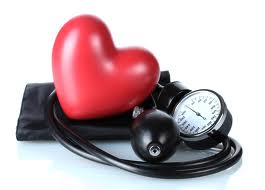
What is Hypertension? How to manage high blood pressure? What are the precautions to be taken? What are the signs and symptoms? What is the cause of this disease? How to treat it? How can homeopathy help you? All of this answered, in this post and of course our doctors always there to help you. Just fill in your details in the form down below and we will answer all your questions for FREE!

What is Hypertension?
High blood pressure, or hypertension, occurs when your blood pressure is 140/90mmHg or higher. High blood pressure is often referred to as “silent killer” as no symptoms are experienced by the patient for years until critical organs are involved.
How is blood pressure recorded?
Blood pressure is measured with blood pressure cuff and recorded as 2 numbers. The higher number is systolic pressure which is the force at which your heart pumps blood around your body.
The lower number is diastolic pressure which is the resistance to the blood flow in the blood vessels. They’re both measured in millimeters of mercury (mmHg).
ideal blood pressure:120/80mmHg
high blood pressure:140/90mmHg or higher
low blood pressure:90/60mmHg or lower
What causes high blood pressure?
There are two types of hypertension:
Primary hypertension: it occurs over time without any specific cause. But there are risk factors that can contribute to the development of high blood pressure.
Secondary hypertension occurs due to an underlying cause. It tends to appear suddenly and it causes higher blood pressure than primary hypertension. Several conditions that can lead to secondary hypertension are:
• kidney disease
• obstructive sleep apnea
• congenital heart defects
• problems with your thyroid
• adrenal gland tumors
• certain endocrine tumors
What are the risk factors?
Risk factors include:
• Age: risk of hypertension increases as you age.
• Family the history of hypertension.
• Obesity
• Physical inactivity
• Oral contraceptive use
• Too much salt (sodium) or too little potassium in your diet
• Stress
• Alcohol and drug abuse
• Medications: decongestants, pain relievers, etc.
What are the sign and symptoms of hypertension?
• Intense headache
• Fatigue or confusion
• Dizziness
• Nausea
• Chest pains
• Breathing problems
• Irregular heartbeat
• Blood in the urine
What is the investigation of hypertension?
•Blood pressure is recorded by sphygmomanometer. If the pressure is greater than 140/90, the patient is considered to have hypertension.
• Physical examination and medical history of the patient and patient’s family.
• Electrocardiograms and Echocardiograms to measure the electrical activity of the heart and see physical structures of the heart.
• Blood tests to identify possible causes of secondary hypertension and to measure renal function, cholesterol levels, electrolyte levels, and sugar levels.
What is the treatment for hypertension?
If you have primary hypertension, lifestyle changes may help you reduce your blood pressure. Lifestyle changes include:
• Maintain a healthy body weight or losing weight if you are obese.
• Exercise and increase physical activities.
• Quit smoking and alcohol
• Stress management
• Practice relaxation or slow, deep breathing
• Developing a healthy diet
• Routine blood pressure screening
If you have secondary hypertension, treatment depends upon the underlying cause.
The medication of hypertension: ACE inhibitors, ARB drugs, beta-blockers, diuretics, calcium channel blockers, alpha-blockers, and peripheral vasodilators.
What is dietary management for hypertension?
• Eat healthy food, eat more plant and less meat
• Low salt diet
• Quit drinking
• Avoid sugary foods and beverages
• Avoid prepackaged food
What is the prognosis of hypertension?
High blood pressure is controlled by medicines and proper lifestyle changes.
What is the homeopathic treatment for hypertension?
-Argentum nitricum
-Aurum met
-Belladonna
-Glonoine
-Calcarea carb
-Natrum mur
-Nux vomica
-Lachesis
-Phosphorus
-Plumbum
-Sanguinaria
For more information, you can visit WebMD and eMedicine.
We have a strong web presence all across the globe with patients in major countries like United States, Australia, United Arab Emirates, Canada, United Kingdom, most European countries, & even smaller counties like Uganda, Nepal, Bangladesh and many more.
We have a very efficient team of doctors which includes the right combination of highly experienced doctors and the doctors of the new age.
Our main aim is to make the patient comfortable so that the case can be taken with ease and the patient be treated properly.
** The text on this website is sourced from websites like emedicine and/or other verified material by government agencies around the globe along with valuable inputs and additions by our team. The content of this page is proofread and updated by the team of doctors, every once in a while, to provide the most accurate information.